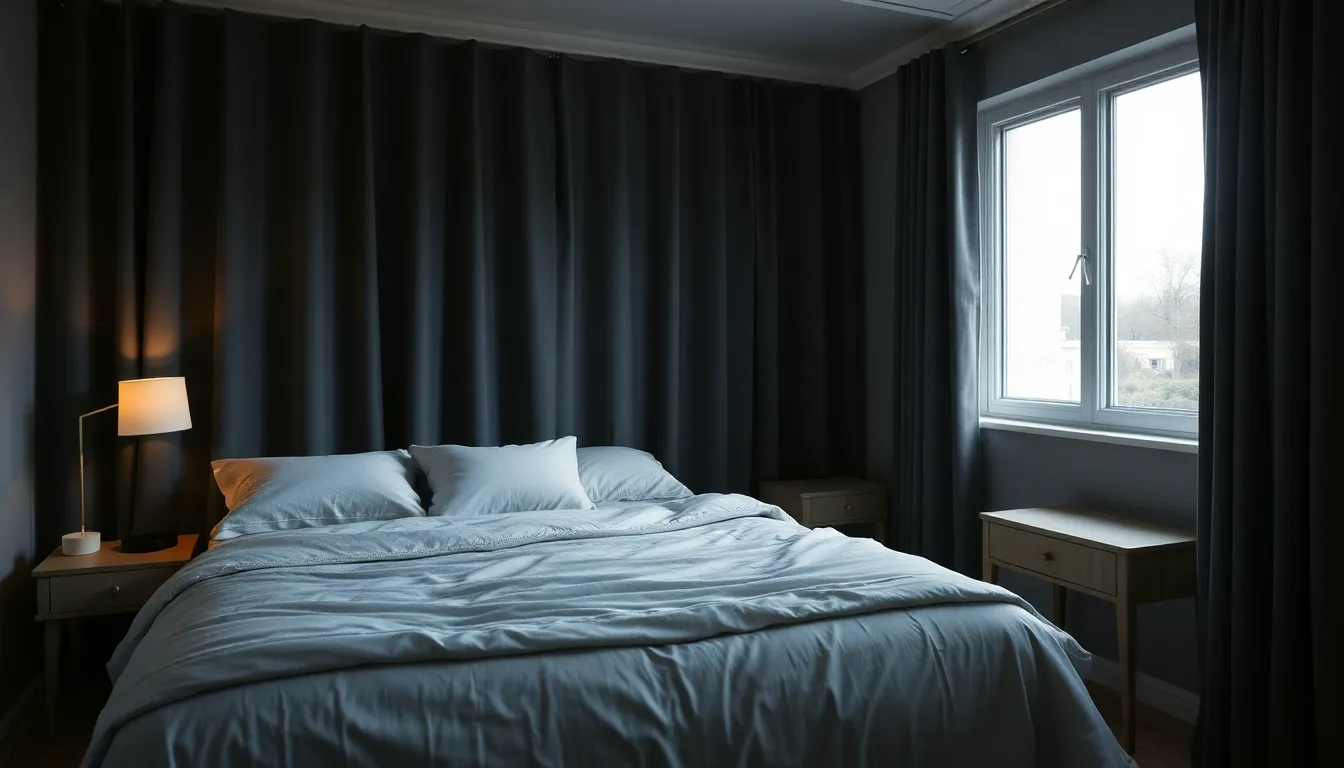Table of Contents
ToggleSleep deprivation affects millions, leading to a cascade of health issues and decreased productivity. With the fast-paced demands of modern life, people often sacrifice sleep, unaware of the long-term consequences. Finding effective solutions to combat sleep deprivation is crucial for overall well-being.
There are numerous strategies to improve sleep quality, from lifestyle changes to natural remedies. Understanding these solutions can empower individuals to reclaim their rest and enhance their daily performance. By prioritizing sleep, one can unlock a healthier, more vibrant life.
Understanding Sleep Deprivation
Sleep deprivation refers to the condition of not receiving adequate sleep, significantly impacting an individual’s daily functioning. Identifying its causes and understanding its effects is essential for developing effective solutions.
Causes of Sleep Deprivation
- Lifestyle choices: Irregular sleep schedules, excessive screen time, and high caffeine consumption contribute significantly to sleep deprivation.
- Work-related stress: High workloads and long hours often lead to inadequate rest, affecting sleep quality.
- Health conditions: Disorders like insomnia, sleep apnea, and chronic pain conditions directly impact the ability to achieve restful sleep.
- Environmental factors: Noisy, uncomfortable, or brightly lit sleeping environments disturb sleep patterns, hindering rejuvenation.
- Mental health issues: Anxiety and depression often exacerbate sleep problems, creating a cyclical challenge that compounds sleep deprivation.
Effects on Health and Well-being
- Cognitive decline: Sleep deprivation impairs attention, decision-making, and memory retention, decreasing overall productivity.
- Mood disorders: Chronic lack of sleep raises the risk of anxiety, irritability, and depression, affecting interpersonal relationships and quality of life.
- Physical health risks: Sleep deprivation is linked to obesity, diabetes, cardiovascular diseases, and weakened immune function, emphasizing its severe health consequences.
- Reduced performance: Decreased concentration and creativity reduce performance in both professional and personal pursuits, leading to potential long-term implications.
- Increased accident risk: Sleep-deprived individuals face higher likelihoods of accidents, whether at work, on the road, or in daily activities due to decreased alertness and slower reaction times.
Lifestyle Changes for Better Sleep


Implementing lifestyle changes can significantly enhance sleep quality. Individuals can adopt effective strategies to foster better sleep habits and create an environment conducive to rest.
Establishing a Sleep Schedule
Establishing a consistent sleep schedule promotes better sleep patterns. Individuals should go to bed and wake up at the same time each day, including weekends. This routine helps regulate the body’s internal clock. Prioritizing a wind-down period 30 to 60 minutes before sleep encourages relaxation. Limiting exposure to screens during this time aids in reducing stimulation, which can interfere with sleep.
Creating a Sleep-Friendly Environment
Creating a sleep-friendly environment is crucial for achieving restful sleep. Individuals should maintain a cool, dark, and quiet bedroom. Using blackout curtains and earplugs can block unwanted light and noise. Investing in a comfortable mattress and pillows supports proper alignment and comfort. Reducing clutter in the bedroom fosters a tranquil atmosphere that promotes relaxation and sleep readiness.
Dietary Adjustments for Improved Sleep
Dietary choices play a significant role in sleep quality. Certain foods can hinder rest, while others promote relaxation and better sleep patterns.
Foods to Avoid Before Bed
Foods high in caffeine—such as coffee, tea, chocolate, and certain soft drinks—disrupt sleep by stimulating the central nervous system. Heavy or rich foods like fried items, spicy dishes, and large portions can cause discomfort, leading to disrupted sleep. Alcohol, though initially sedative, worsens sleep quality later in the night. Sugary snacks and refined carbohydrates spike blood sugar levels, which can result in restlessness.
Nutrients That Promote Sleep
Certain nutrients encourage better sleep patterns. Magnesium aids relaxation by regulating neurotransmitters. Foods rich in magnesium, including leafy greens, nuts, and seeds, should be included in evening meals. Tryptophan, found in turkey, dairy, and bananas, promotes serotonin production, enhancing sleep quality. Omega-3 fatty acids, prevalent in fatty fish and walnuts, support brain health, reducing anxiety. Incorporating complex carbohydrates like whole grains facilitates the transport of tryptophan into the brain, further supporting sleep.
Natural Remedies for Sleep Deprivation
Natural remedies offer effective pathways for alleviating sleep deprivation. Incorporating herbal supplements and relaxation techniques can significantly enhance sleep quality.
Herbal Supplements
Herbal supplements provide natural solutions that support sleep. Common options include:
- Valerian Root: Valerian root, known for its sedative properties, may decrease the time taken to fall asleep and improve sleep quality.
- Chamomile: Chamomile, often consumed as tea, acts as a mild tranquilizer. It can ease anxiety and promote relaxation.
- Lavender: Lavender’s calming fragrance can improve sleep quality and decrease insomnia symptoms. Aromatherapy with lavender essential oil benefits many individuals.
- Passionflower: Passionflower may enhance sleep quality by increasing gamma-aminobutyric acid (GABA) in the brain, promoting calmness.
Consult a healthcare professional before starting any herbal supplement.
Relaxation Techniques
Relaxation techniques help reduce stress and anxiety, making falling asleep easier. Effective methods include:
- Deep Breathing: Deep breathing exercises, involving inhaling for a count of four, holding for four, and exhaling for four, promote relaxation.
- Progressive Muscle Relaxation: This technique focuses on tensing and then relaxing different muscle groups, facilitating physical and mental relaxation.
- Mindfulness Meditation: Mindfulness meditation encourages a focus on the present moment, reducing racing thoughts that may hinder sleep.
- Gentle Yoga: Gentle yoga stretches, practiced before bed, assist in releasing tension and promoting physical relaxation.
Incorporating these techniques into a nightly routine can foster an environment conducive to restful sleep.
When to Seek Professional Help
Recognizing when to seek professional help for sleep deprivation is crucial for maintaining overall health. If sleep issues persist despite implementing lifestyle changes and remedies, consulting a healthcare provider becomes necessary.
Signs You Need to Consult a Professional
- Persistent insomnia: Difficulty falling asleep or staying asleep for over three weeks indicates a potential issue requiring evaluation.
- Daytime fatigue: Chronic exhaustion, despite sufficient hours spent in bed, signals a need for assessment.
- Mood changes: Significant alterations in mood, such as increased irritability or depression, often correlate with sleep issues.
- Cognitive impairments: Noticeable decline in focus, memory, or decision-making abilities may point to sleep deprivation complications.
- Breathing difficulties: Experiencing symptoms like snoring, gasping, or choking during sleep warrants professional evaluation for conditions like sleep apnea.
- Leg discomfort: Unexplained sensations in the legs at night, often associated with restless legs syndrome, require attention.
Types of Sleep Disorders
- Insomnia: Characterized by difficulty falling or staying asleep, insomnia can disrupt daily functioning and should be addressed.
- Sleep apnea: A serious condition marked by interrupted breathing during sleep, sleep apnea poses risks for cardiovascular health and requires intervention.
- Restless legs syndrome: This disorder is characterized by uncomfortable leg sensations leading to an overwhelming urge to move the legs, disrupting sleep.
- Narcolepsy: This neurological disorder causes excessive daytime sleepiness and sudden sleep episodes, impacting daily life and safety.
- Circadian rhythm disorders: Conditions like delayed sleep phase disorder affect the timing of sleep, making it difficult to adhere to societal schedules.
Identifying and addressing these signs and disorders leads to timely intervention and improved sleep quality.




